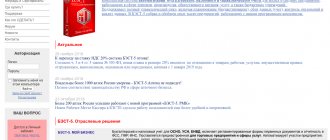The issue of saving and accumulating money is of interest to many people who want to ensure a cloudless financial future, make expensive purchases, and make money work.
The problem is the initial amount required to purchase the desired product, service, real estate, or business investment.
How to allocate amounts from the money on hand, forcing them to work? What savings methods exist, and in what currency is it more profitable to keep money? How to make your existing funds work for you? Let's look at these and other questions in the article below.
What is savings and how to save money?
Savings is the amount of funds allocated by a person to solve emerging needs. Often, savings form a safety net - an amount that insures a person. Modern financial analysts say: the amount of the financial airbag should be approximately 6 salaries. The available money guarantees a person’s comfortable existence if for some reason he is unable to work within six months.
Savings form a safety net
Having created a financial safety net, you can begin to accumulate funds for the purpose of investing in a bank, exchanging currency, buying real estate, or starting a business.
The issue of savings must be approached carefully and delicately. This applies to calculations of amounts going “underground” and places of conservation. Increase money. The opportunity to save savings is a chance to improve your life and get more prospects in the future with the correct use of available funds.
Method 2: In a safe deposit box
The convenience is that you can put money in the safe at any time, and it will end up in a truly safe place. There are no restrictions on the type of funds: national and foreign currencies, coins, stamp collections, stocks, bonds, etc. are accepted. The only disadvantage is that the money will not bring income - on the contrary, a small fee will be required for storing it.
What does saving depend on?
There are several factors influencing the amount of savings created:
- Activities, amount of salary received;
- The amount of expenses required for a comfortable existence;
- Additional sources of income;
- Economic and financial situation in the country;
- Ability to plan existing budget;
- Saving on buying unnecessary things;
- The ability to save a certain amount before incurring the bulk of expenses;
- Place of residence.
There are many factors influencing the ability to accumulate funds and make savings. Any resident of Russia can influence approximately 90% of them independently.
Store in currency
Which currency to give preference to is a controversial issue. If the accumulated amount allows, it is better to assemble a heterogeneous currency basket. Experts advise using three monetary units for this - euros, US dollars and rubles. Other foreign currencies are also available in the Russian Federation, such as yuan or yen. However, the currencies of the leading world powers are always the most effective.
Depending on future forecasts, the proportion of currencies in your basket may vary. The most commonly used ratio is 30%-30%-40%, where the euro and dollar are in the first two places, and Russian rubles are in the third.
Ruble savings can be sent to a bank deposit and receive profit in the form of interest due. Also, if you are on the territory of the Russian Federation, then you can pay here, make purchases in a store, and pay bills only in rubles. Therefore, part of the savings should definitely be in the national currency.
You should not hope for high profits on deposits in foreign currency. The maximum interest rate here does not exceed 2% per annum. But saving in dollars and euros is a high guarantee of stability and a potential opportunity to make a significant profit by successfully playing on changes in the exchange rate.
It is very difficult to predict currency prices for the next year or two. Thus, by the current year 2020, the Ministry of Finance of the Russian Federation predicted an exchange rate of 71.1 rubles per dollar. As you can see, the forecast has not yet come true.
How to save money?
There are many options for saving money; most people know them. In practice, few people use the available opportunities, instantly spending the funds on hand.
When starting to understand the issues of creating savings, we note that experts advise initially setting aside 5% of your income every month as an untouchable amount. Based on expenses and income, the figure often increases to 25-30%. There are cases of competent planning - it is possible to save up to 50% of the funds received.
There are many options for proper savings
The role is played by the amount of income, expenses, human needs, and the ability to correctly and competently plan your budget. Having learned to save a certain amount after receiving money, most problems will be solved.
Two to three months after the start of control, anyone automatically gets used to having on hand an amount less than what they initially received. Gradually, you have to think about what ways to store your savings and what to do with the accumulated amount of funds.
You can also resolve financial issues with the help of Alfa-Bank by following this link
Keep money at home “under the mattress”
Since the 90s of the last century, many people have become accustomed to keeping savings at home - some under the mattress, some under the pillow, and some even in containers for bulk products. Some continue to do this to this day, despite the provision of government guarantees for the safety of bank deposits and numerous other opportunities. This behavior can be explained as follows:
- A person does not know his capabilities.
- There is no habit of trusting banks.
- The savings are of dubious origin.
- A person is afraid to expose his savings.
Cash in the hands of the population causes a lot of trouble for supervisory and tax authorities. A bank deposit is much easier to track and control the transactions carried out on it. Money under your pillow at home makes it possible to hide savings from the attention of regulatory authorities, especially if the property was acquired illegally or taxes have not been paid on it.
Starting from 2020, when opening a deposit for a client, any bank has the right to determine the origin of the funds. Only savings kept at home guarantee their owner complete anonymity.
Another advantage of having money under your pillow is that it is always at hand. They can be used at any time without fear of bank bankruptcy or lack of cash at ATMs and cash desks. However, such financial autonomy and independence has its drawbacks.
Funds stored at home do not work for you and do not bring profit. A simple bank deposit can provide up to 10% of annual income. The current inflation rate in the Russian Federation ranges from 6 to 8% per year. This means that by not realizing the potential return on your money in the form of bank interest, you not only lose profits, but also suffer an annual loss of purchasing power of about 8%. After some five years, a little more than half of their original value will actually remain of your existing savings.
Again, there is always the risk of losing funds stored at home due to an accident, fire, natural disaster or robbery. In this case, you can lose everything! Even home or apartment insurance will not save the situation, since it does not cover the money inside. You can keep funds in a purchased safe, but this too often attracts increased attention from criminal elements.
How to store savings?
The question is relevant. Methods for storing savings differ markedly; everyone chooses the best one for themselves. What's relevant now?
- Storing funds on deposit. The bank is supposed to use the money, as a result of which the client is charged a certain percentage for a year of use. This is the simplest option for saving and increasing funds, at least protecting against inflation.
- Purchasing currency. A very complex, contradictory storage option, since the deposit amount can increase or decrease regardless of the depositor’s wishes.
- Shares, bonds, other securities. A current option if you have certain knowledge in the industry and work with a specialist. It is necessary to understand and find the optimal places to invest, assuming an increase in the available amount of money.
- Investments in real estate. It is possible to buy, sell real estate, rent out acquired residential and non-residential space. A very controversial, contradictory investment option, depending on a number of factors. It is chosen by Russian residents for a simple reason - real estate prices are rising, allowing them to guarantee income in the future.
- Storage in precious metals. An option for cooperation with a bank, which involves the purchase of coins, bars of other precious metals sold by the organization. The advantage is good stability and safety of money, the disadvantage is that the offer is relevant only for a bank client in a certain organization.
A separate place for storing funds is investing in a business. The occupation is risky, but at the same time it offers the opportunity to receive considerable benefits from the fact that money “works”.
It's profitable?
Of the above storage options, Russian residents choose two - creating a deposit account in a bank or storing money at home. The last option is controversial, as many experts point out.
The ideal option for storing money is storing it in a bank
Keeping money at home is guaranteed to lead to its gradual depreciation, taking into account the average annual inflation rate. Remembering the nineties, Russians en masse do not risk taking money to banks, preferring to lose a certain amount by keeping cash “in a stocking.”
Why is it not recommended to keep funds at home?
Many citizens do not trust the state, banks, or companies, so they keep their savings at home. In this case, most often they use not a safe, but a simple desk or cabinet. This situation is explained by the following points:
- lack of knowledge regarding how to make a contribution;
- lack of trust in banks and the state;
- undeclared income;
- illegal origin of funds;
- existence of debts to creditors.
In the first two cases, you just need to get rid of prejudices, choose a reliable investment method and study all the intricacies of the deposit.
However, storing money at home has some advantages:
- money is always available and if you need cash, you don’t have to go anywhere to get it;
- a person is not nervous about their safety when the funds are always “at hand”;
- money is protected from cyber fraudsters.
However, this method of storing money has more disadvantages than advantages:
- money depreciates, since every year inflation eliminates approximately 10% of funds;
- due to the availability of funds, it is difficult to save them, there is always a temptation to spend money, especially if some things become unusable;
- savings are not protected from robbers and natural disasters;
- one of the household members may accidentally throw away the “stash” if it is stored, for example, in an old book.
Experts recommend keeping at home only the amount required for current expenses. The rest of the money is best invested so that it does not depreciate.
Savings on everything
A simple option for creating savings is saving. The process of saving the required amount must be approached correctly and carefully. What can you save on?
- Fashion trends. Super fashionable items belonging to new collections are more expensive than classic models. Think about whether there is a need to buy newfangled clothes. This is a chance to save money. Stockmarket offers quality items at reasonable prices. You can take advantage of seasonal discounts offered by stores.
- Food. Analyze your diet, consider healthier, more affordable foods. Analogues always exist; it is possible to find food products that meet the desired quality at a more affordable price.
- Entertainment. Consider the point of going to the cinema if the film you are interested in appears in good quality online in a week. The number of visits to a cafe can be reduced to once a month, if previously you went out on such a weekly basis.
- Bad habits. We will have to put a taboo on alcohol and tobacco. These two points involve considerable expenses, starting from 5,000 rubles per month.
- Walk. If you live 2-3 stops from work, avoid traveling by car or bus. Initially, improved health and enjoyment of the morning silence while walking to the office are guaranteed. Saving money on travel will help put the available money into savings.
- Avoid unnecessary purchases. Think about the real need for a new phone, thing, or some thoughtless acquisition. There is a high probability that the desire to purchase is inspired from the outside (relatives, advertising, friends).
- Give up your life on debt. Do not use offers from banks and microfinance organizations by lending money at interest. You will have to pay more.
- Use of promotions and discounts. Online stores, supermarkets, hypermarkets and shopping centers offer a profitable system of discounts and discounts that allow you to save money. Keep track of profitable offers and make the most of them. Before purchasing, it is worth calculating whether the promotion is really justified, whether there is any point in placing an order or making a purchase.
- Cook it yourself. Cooking your meals yourself guarantees their freshness, excellent taste, and maximum savings. An identical dish prepared at home and in a cafe differs in cost by approximately 2-3 times.
- Be careful with the clothes, things, and household items you have at home. This eliminates the possibility of additional expenses and purchases of things that you can do without.
- Do not pay with a deposit or credit card. Try to pay in cash. On a psychological level, you can see how much money is spent. There is no such feeling when writing off a card; it is more difficult to stop while making purchases.
- Find sources of financial losses. They are tariffs for mobile communications, Internet, subscriptions, and purchase of magazines. Mobile operators independently change the tariff without notifying the client, adding unnecessary functions to the selected package. Make sure that there are no additional costs for this item.
Before the start of the month, strictly plan your expenses, income, and look for additional sources of profit. Act clearly according to the plan, without deviating from it. This way, it is possible to realize any wishes - you will have money for them, which you will not have to borrow from a bank or microfinance organization.
Store in a bank account
The Russian banking system today enjoys high confidence from citizens, largely thanks to the guarantees provided by the DIA (Deposit Insurance Agency). Savings in the bank up to 1,400,000 rubles are guaranteed to be returned under insurance. It is simply impossible to lose them.
At the same time, the depositor can hope not only for safety, but also for profit, since many banks offer fairly high interest rates.
Ideally, it is best to open a replenishable account that allows you to withdraw money early without losing interest. Typically, the terms of the most profitable deposits are fixed, and during this time you will not be able to manage your savings. This is the main disadvantage of a bank deposit.
In addition, you can choose this method of storing funds only if you have the opportunity to confirm their legal origin. Having opened a bank deposit, you immediately become the object of attention of supervisory structures. It’s not that the bank itself sends your data somewhere, but funds transferred to the account may become a potential object of interest to regulatory authorities, such as the tax service, etc.
The banking system also allows you to store funds in foreign currency and precious metals. Banks also offer investment instruments, but this is already a risk area where there is no guarantee of the safety of savings.
The most
Think about other savings options, consider looking for additional sources of income. They can be anything - hobbies, abilities, knowledge, skills. Many additionally receive money by conducting master classes, training, and webinars. Youtube channels are being created en masse, websites are being promoted and filled with information.
Passive income options remain popular, allowing you to have additional funds to improve your life. It is ideal to have several sources of income, 2-3 places of investment. This approach guarantees the safety of money, its increase in any life situation, despite the instability outside the window, the difficult economic situation in the country, and so on.
There are many additional ways to earn money
When living as a family in a house or apartment, discuss the issue with relatives. Family representatives should aim to preserve and increase funds. Then the work is done easily, simply, quickly.
Discuss options for increasing your existing money, study all the offers of loved ones. Perhaps you will like one of the ideas proposed by a relative and become relevant for implementation.
Financial management
Financial management is a complex and controversial issue. Institutes, universities, schools, colleges do not provide the necessary information about managing available money, saving, and creating investments. You have to acquire knowledge on your own.
It would be ideal to study relevant literature, search for relevant articles on the Internet, and study YouTube channels. Financial specialists and analysts give a lot of useful advice that is currently valid and relevant. They will allow you to save and increase your existing money, create the necessary safety net, help you save for a comfortable old age, and increase the amount of money you earn.
Proper financial management will prevent unnecessary waste
The issue is very delicate; its study and comprehension must be approached carefully, assessing the pros and cons. Advice that works for one person may not work for another person. The issue is decided purely individually - someone can save on food, another is a gourmet. For some, items purchased at a stock market are normal, while others prefer to buy clothes only in brand stores. It is important to search and highlight savings options that are suitable for a specific family or person.
Save on discounts
Savings are achieved by using discounts and promotions in stores. People go to markets en masse, expecting to buy food and goods at lower, more favorable prices than in supermarkets, hypermarkets, and shopping centers. The action is justified. You may even consider purchasing products at wholesale stores located near your home. It’s easier to cooperate with relatives, spending a certain amount of money on a purchase. Savings on food in this case will reach up to 20%.
Take part in a variety of sales
By fulfilling the above conditions and correctly approaching the issue of saving and investing, you can easily create sources of potential income in the future, have money both for a large purchase and for investing in a business.
Five of the most original ways to store money
1. Shares of privatized enterprises . A share is a fairly liquid instrument; you can sell it in 1 day. Registered shares will not be stolen, but at the same time it is easy for the owner to sell them. There is one downside: to make a profitable investment, you need to understand securities quotes.
2. Bonds . A less risky method compared to the previous one: the amount of income is agreed upon immediately. Bonds are issued by private companies and the government. The financial obligations of the last player on the market are the most reliable, but the yield on the securities is also low. The state promises to return the invested funds, but is not able to offer high interest rates.
Worth remembering! Those who are not chasing super returns and prefer minimal risk should pay attention to federal loan bonds (OFZ): 10% per annum and guarantees on behalf of the state. Large sums are invested in OFZs, and bonds can be sold at any time without loss of interest.
3. Mutual investment funds (UIFs) . These are organizations that generate income for their clients through profitable placement of their money. The advantage is that the funds are controlled by the state, and the money is managed by specialists who assess risks according to professional criteria. You won’t be able to earn huge interest rates on mutual funds, but it is a worthy way to preserve your savings.
Be careful! The mutual fund is not a participant in the Deposit Guarantee Fund. This means that if the mutual fund goes bankrupt, you are unlikely to be able to get your funds back.
4. Cars, art objects, valuables . Money can be turned not only into real estate, but any valuable things: paintings, icons, ancient engravings. It’s more pleasant to keep such a “deposit” in your home; it doesn’t take up much space and keeps your money quite reliably. Disadvantages in liquidity - it will be difficult to sell a piece of art for its true price. And there is always a risk of theft.
Read also:
Grant for starting a small business in 2020: guide to receiving, tips, recommendations
5. Loans . If none of the above methods are suitable, you can borrow money from friends who need an influx of cash. Proper documentation of such a transaction guarantees the return of the loan back to the owner.
Remember! There are a lot of risky projects in financial markets that offer high interest rates and short payback periods. Experts advise to be wary of yields in rubles exceeding 15% per annum.











